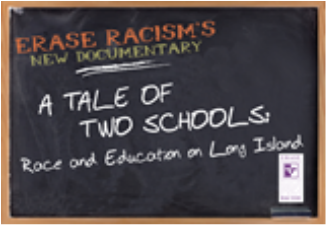 Tags: children/youth, class, education, inequality, race/ethnicity, subtitles/CC, 21 to 60 mins Year: 2010 Length: 26:54 Access: ERASE Racism Summary: ERASE Racism’s documentary, A Tale of Two Schools: Race and Education on Long Island, follows David and Owen, two African American teenagers during their senior year of high school. Even though the students have a lot in common, they go to very different schools. This documentary does a great job of concisely spotlighting the differences and the results of structural educational disparities. Through this film, students will see how race and class are large determining factors in how public schools are funded and what that means for the students who attend those schools. This video would pair well with a Jonathan Kozol reading or "Why Segregation Matters" by Gary Orfield and Chungmei Lee. Check out ERASE Racism's website for additional resources related to the film. Note: the available subtitles are in Spanish. Submitted By: Kendra Barber
2 Comments
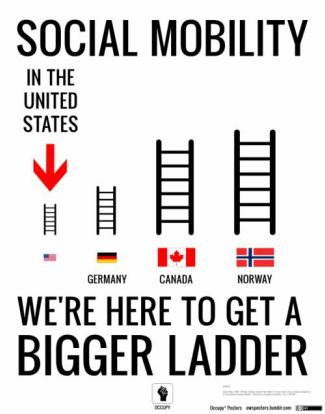 Tags: capitalism, class, economic sociology, education, inequality, intergenerational mobility, intragenerational mobility, occupy wall street, ows, social mobility, subtitles/CC, 00 to 05 mins Year: 2011 Length: 3:09 Access: YouTube Summary: In this short news clip, journalist Fareed Zakaria discusses what he believes to be Occupy Wall Street's core criticism. Noting that the United States has long had greater levels of inequality than many other nations, he argues that inequality can't be the sole catalyst for the protests. Instead, he thinks the movement was born from the sinking realization that it is increasingly difficult to move up the social mobility ladder and that Americans generally put up with inequality because they believe they can change their own class status. Zakaria points to a Time magazine article written by Rana Foroohar, which explores empirical evidence about social mobility in the United States. In terms of intragenerational mobility, Foroohar notes that if you were born in 1970 in the bottom 20% of our socioeconomic spectrum, you have a 17% chance of making it into the upper 40% of the spectrum. Turning to intergenerational mobility, nearly half of men whose fathers were in the bottom 20% of the socioeconomic spectrum, remained in the bottom 20%. In comparison to Denmark and Sweden, only a quarter of men remained in the bottom 20% of the spectrum, leading to the uncomfortable conclusion that the American dream is really only alive and well in Europe. The antidote to this crisis, as Zakaria argues, is improved education, and he tackles the argument in greater detail in a special he hosts called Fixing Education. The clip works nicely as an introduction to the topic of social mobility, but also as a vivid example of how empirical observation can powerfully expose the myths, which buttress American exceptionalism and ultimately perpetuate American inequality. It also dovetails nicely with Nobel prize winning economist, Joseph Stiglitz's new book, The Price of Inequality: How Today's Society Endangers Our Future, where he argues that the Horatio Alger rags-to riches story is no longer a reality for Americans. Submitted By: Lester Andrist 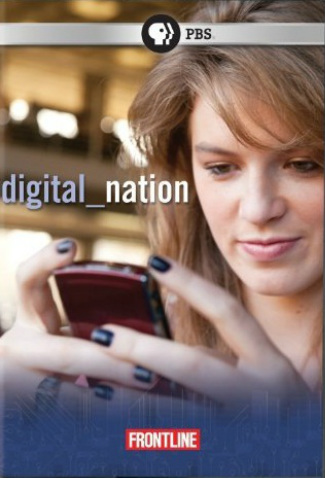 Tags: children/youth, education, media, science/technology, social problems, subtitles/CC, 61+ mins Year: 2009 Length: 90:00 Access: Frontline Summary: This PBS special challenges the advertising image of technology as always "progress" or a "solution" to contemporary problems. Instead, this series of short topics highlights how technology has actually created a whole host of its own social problems related to digital over-saturation. This video is paired well with Kenneth Gergen's "The Saturated Self," or other readings that deal with how technology has changed our daily lives in very powerful ways. It can also be used to encourage students to disconnect when reading or writing for classes in that the video presents research that indicates that multitasking makes us dumber. I have found that students have strong (often defensive) reactions to this video, so I also make time for classroom discussion, or I assign a reaction paper. Submitted By: Michelle Smirnova 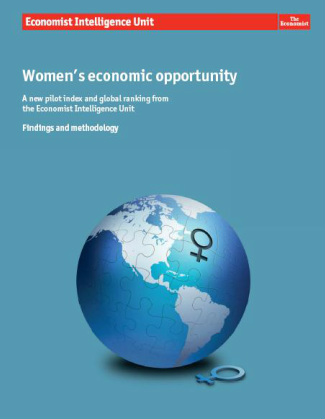 Tags: economic sociology, education, gender, inequality, methodology/statistics, violence, data visualization, stratification, 06 to 10 mins Year: 2011 Length: 6:36 Access: YouTube Summary: This clip utilizes data visualization techniques to present data from the Women's Economic Opportunity Index, a measure constructed (and 150-page report published) by the Economist Intelligence Unit, an in-house research unit for The Economist. Detailed storyboards present data on women's economic status from 113 countries across the globe, including information on education, equal pay for equal work, the relationship between gender violence and earnings, paid maternity leave, and the discrepancies between legislation and enforcement around laws aimed at promoting women's economic opportunities. Viewers might be especially surprised to learn that, of the 113 countries analyzed, the United States lags behind is Western counterparts on many measures, and is currently the only country out of the 113 that does not offer some kind of mandatory paid maternity leave for women. While this concise 6-minute clip would be great to show in a class on gender and global economics, inequality, education, and/or violence against women, the density and pace of the information presented also makes this clip ideal to incorporate in a take-home assignment, where students can have time to re-watch the presentation and process the information. For another clip on The Sociological Cinema that uses data visualization techniques, click here. Submitted By: Lindsey Baker 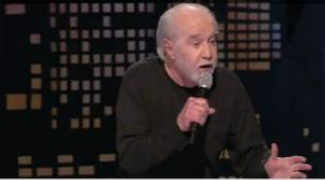 Tags: capitalism, class, education, inequality, marx/marxism, political economy, theory, american dream, comedy, false consciousness, ideology, 00 to 05 mins Year: 2005 Length: 3:15 Access: YouTube Summary: Trigger warning: In typical George Carlin style, this clip is full of expletives and vulgar sexual metaphors (although the language in the first 1:20 is OK). Here, Carlin emphasizes the gap between "the owners of this country" and the rest of us. Carlin states that the owners control the politicians by lobbying to get what they want, but they also control people through education and media. They keep the educational system just good enough to educate people to be obedient workers but keep it poor enough so that it does not teach people enough to be able to think for themselves. They use the media to tell people what to believe, what to buy, and what to think. Because people can vote, they suffer the illusion that they have "freedom of choice." Suffering from false consciousness, they support ideas that are against their own self interests; for example they accept the reduced pay, fewer benefits, and less social programs that the owners claim are in their interests. All the while, they remain powerless to the owners. This illustrates Marx's concept of ideology; Marx stated “the ideas of the ruling class are in every epoch the ruling ideas." These ruling ideas, or ideologies, obscure the structural violence and exploitation used to keep oppressed groups in their place. The clip ends with the statement "it's called the American Dream because you have to be asleep to believe it," emphasizing a fundamental ideology that legitimates social inequality and oppression. Submitted: Jack Pold and Delano Scott  Viggo Mortensen reads Howard Zinn Viggo Mortensen reads Howard Zinn Tags: education, government/the state, historical sociology, knowledge, nationalism, political economy, war/military, activism, empire, howard zinn, imperialism, sociological imagination, subtitles/CC, 06 to 10 mins Year: 2008 Length: 8:35 Access: YouTube Summary: This video portrays Howard Zinn's essay "Empire or Humanity?: What the classroom didn’t teach me about the American empire" as narrated by the actor Viggo Mortensen (original essay and teaching materials posted here). It traces Zinn's own development of his sociological imagination, his miseducation in public schools, and his critique of US foreign policy. This video is good for introducing the concept of the sociological imagination, the connecting of private troubles to public issues (CW Mills), and thinking critically about issues of power, empire, and imperialism. It may be useful during an introductory lecture in lower level sociology classes (particularly Intro to Sociology, Social Problems, or Contemporary Theory). It can be used as an ice-breaker for beginning to talk about the sociological imagination as a way of seeing by looking for patterns, thinking critically, and connecting one's "private troubles" to "public issues." Submitted By: Dave Paul Strohecker (@dpsFTW)  Tags: commodification, consumption/consumerism, corporations, education, marketing/brands, advertising, college students, 00 to 05 mins Year: 2011 Length: 5:41 Access: NYTimes.com Summary: This NYT video starts by showing us UNC's inaugural party for incoming freshmen at Target (an American big-box store) where "campus ambassadors" promote corporate brands to their fellow students. At another 50 campuses, American Eagle student representatives help freshmen move into their dorms on their first ever day at college, an iconic and memorable moment to link to corporate branding. As one marketing exec says, "its all about marketing through students as opposed to marketing to students." But what does this mean for university education today? The university, meant to represent intellectual integrity through the pursuit of truth and dissemination of knowledge, is becoming increasingly compromised as budgetary cuts encourage greater reliance on the private sector. The students themselves benefit by gaining work experience, compensation in money and products, and networking (e.g. meeting marketing executives), but are they being manipulated by corporations in the process? Student "ambassadors" in the video report that "when you know companies are not there just to get your money, they're actually willing to help you as an individual in whatever way possible, it makes you respect them a lot more," and that it "feels like what you're doing actually matters." Are these corporations really "willing to help in any way possible" or will they do this only insofar as they have something to gain? A UNC representative notes that they have little control over the commercialization of their campus, and a student advocate for social justice notes that this is "commercialization and materialism at its finest." The video reflects a growing body of research (e.g. The Corporate Campus) documenting the rise of commercialization on college campuses, which offers many excellent readings that can be paired with it. Viewers may be encouraged to reflect on the role of corporations and corporate advertising in society today. How have corporations drawn upon social relationships of trust and legitimacy to further their agenda? How might a Marxian perspective help us understand these processes and what is at stake? Should corporate advertising be banned in certain spaces? Submitted By: Paul Dean 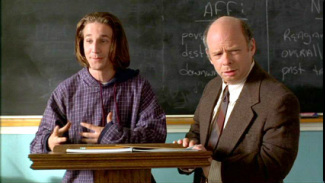 Tags: children/youth, class, education, methodology/statistics, autoethnography, film studies, popular culture, privilege, 00 to 05 mins Year: 1995 Length: 0:40 Access: MOVIECLIPS Summary: In this clip from the movie Clueless, Travis thanks the many people involved in helping him accrue the most tardies in the class. I've used this clip as a (very brief) example of autoethnography, a method of autobiographical storytelling that explores a person's social experiences through their empirical yet subjective personal narrative. I ask students to reflect on the social relationships and experiences that have shaped their identities and their understandings of themselves. This clip, though short, gives us plenty to talk about in the way of social relationships shaping Travis' life -- his parents never give him a ride to school; why might that be? He rides public transit; how might that shape how his Beverly Hills classmates see him? This can lead to a discussion about how social class has shaped this character's experiences, how he sees himself, how others see him, as well as how he perceives others to see him. Submitted By: Margaret Austin Smith  Tags: capitalism, class, education, inequality, marx/marxism, theory, privilege, social mobility, wealth, 21 to 60 mins Year: 2011 Length: 60:00 Access: YouTube: part 1; part 2; part 3; part 4; part 5 (note: this video quality is poor and beginning with part 2, the audio and video are out of sync; more info at BBC) Summary: This BBC documentary discusses the structure and experiences of social mobility and social reproduction within Britain. As the BBC notes, "Britain is a less equal society than at any time since World War One. In Who Gets the Best Jobs, Richard Bilton investigates access to the professions and finds that the best jobs are being snapped up by an increasingly small gene pool of privileged, well-connected families. Getting a good degree matters more than ever and those from low income families can no longer easily work their way up from the bottom without the qualifications, contacts and social skills that their more fortunate counterparts make full use of." It discusses the role of rising inequality, (unpaid) internships, private schooling, social capital/networking, individual aspiration, the transmission of skills in middle-class households, cultural capital (although they do not use the term), the increasing competition for good jobs, and compares mobility in Britain to other countries. Submitted By: Paul Dean 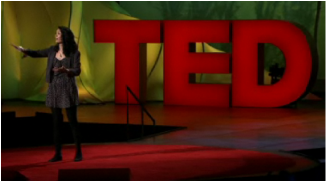 Tags: art/music, children/youth, discourse/language, education, knowledge, pedagogy, performance poetry, spoken word, 11 to 20 mins Year: 2011 Length: 18:29 Access: TED Talks Summary: In this TED Talk, 22-year-old spoken word poet Sarah Kay discusses her personal and professional experience with spoken word performance poetry. Throughout the talk, Kay highlights the pedagogical possibilities of spoken word, describing the ways in which New York City’s Bowery Poetry Club became her “classroom” when she was just 14 years old, as well as her current educational work with students across the country, using spoken word as a site of engagement. Such pedagogical possibilities point to the ways in which spoken word poetry might serve as a productive site for sociological analysis as well, in that it provides an accessible and entertaining medium through which students can “figure things out,” allowing them to draw upon their personal stories and experiences to explore something previously unknown to them. Echoing insights from C.W. Mills, Kay describes the pedagogical utility of using our personal stories (i.e., biographies) as a way through which to discover and connect to social phenomena “out there," seemingly detached from our own lives (i.e., history). As sociology instructors, we can draw upon this pedagogical approach. A class assignment might ask students to write (and perform) a spoken word poem about a topic germane to the class content; this can involve an explicit requirement for students to weave their personal stories into a potentially abstract sociological concept or subject area (the subject can be anything, e.g., social networks, gender violence, disability, stratification, hegemonic masculinity, rural poverty, conspicuous consumption, etc). This video clip can serve as an introduction to the assignment, providing a background on spoken word performance poetry; Kay also offers a few poetry writing exercises in the clip. Examples of how spoken word poetry can serve as a site for sociological analysis can be found here and here on The Sociological Cinema. Other TED Talks on the site can be found here, here, and here. Submitted By: Valerie Chepp |
Tags
All
.
Got any videos?
Are you finding useful videos for your classes? Do you have good videos you use in your own classes? Please consider submitting your videos here and helping us build our database!
|
 RSS Feed
RSS Feed
